May 19, 2025
Former Diplomats and Human Rights Advocates Draw Parallels Between Stalin’s Crimes and Current Kremlin Policies

The solemn laying of flowers and lighting of candles, held at the Victims of Communism Memorial in Washington, honored the memory of approximately 423,100 victims of the 1944 repressions, while simultaneously drawing international attention to the situation of Crimean Tatars under Russian control following the annexation of the peninsula in 2014.

Distinguished Diplomats Emphasize Historical Injustice
Former U.S. Ambassador to Ukraine John Herbst delivered a powerful speech, contextualizing the historical resistance of Crimean Tatars and directly connecting historical events to the current geopolitical situation.
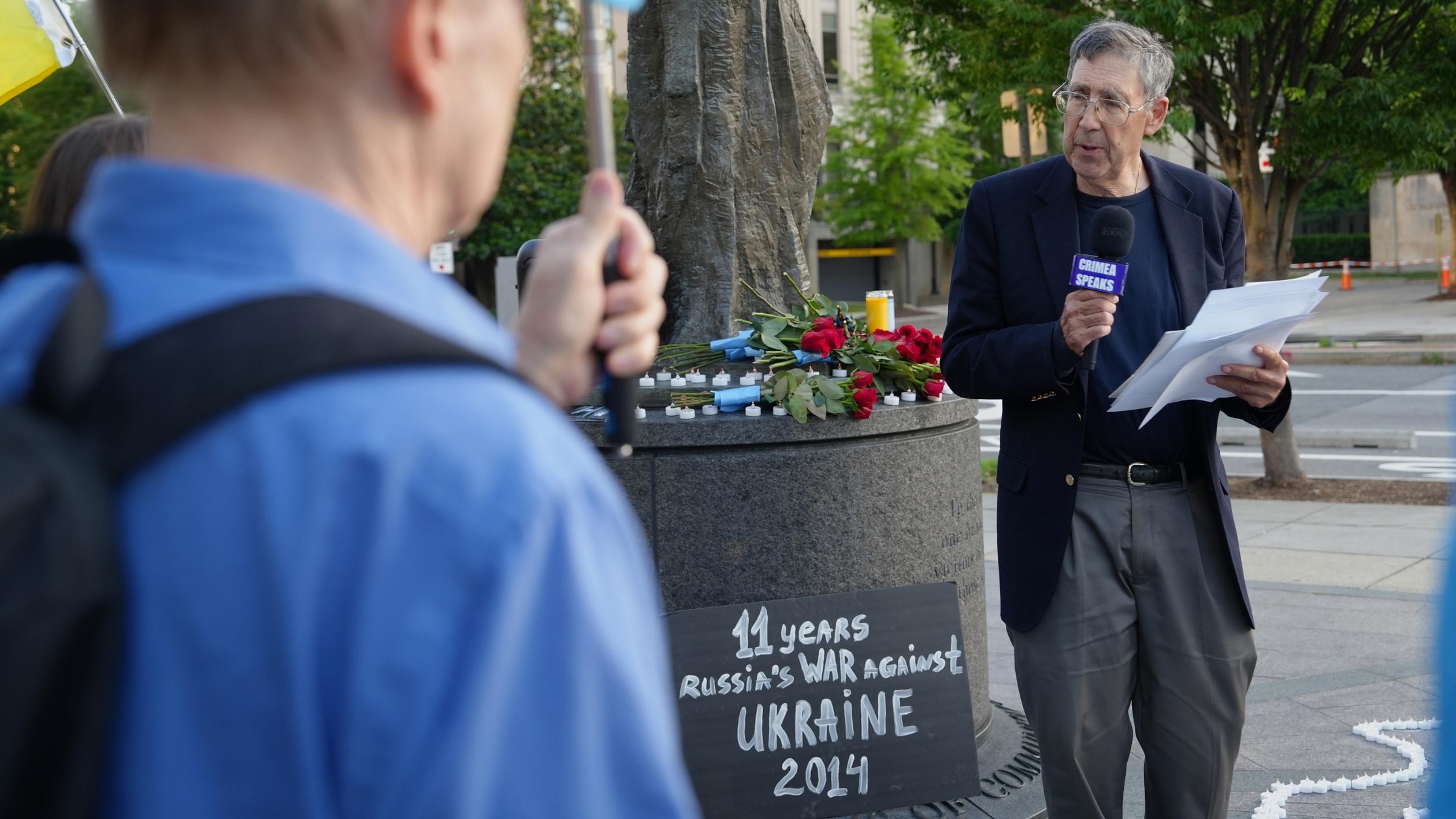
“I want to begin with the history of Crimean Tatars, because human dignity requires us to acknowledge that today marks the 81st anniversary of the repressions of Crimean Tatars from their ancestral homeland,” Herbst told those gathered in the open air. “The ancestors of Crimean Tatars lived on the peninsula for many hundreds of years. They created the Crimean Khanate, the Crimean Tatar state, which was annexed by the Russian Empire in 1783.”

Herbst called the Soviet actions by their proper name: “Stalin’s treatment of Crimean Tatar people was a major crime, and significant institutions and individuals call it genocide. But this crime continued even after Stalin’s death in the early 1950s.”
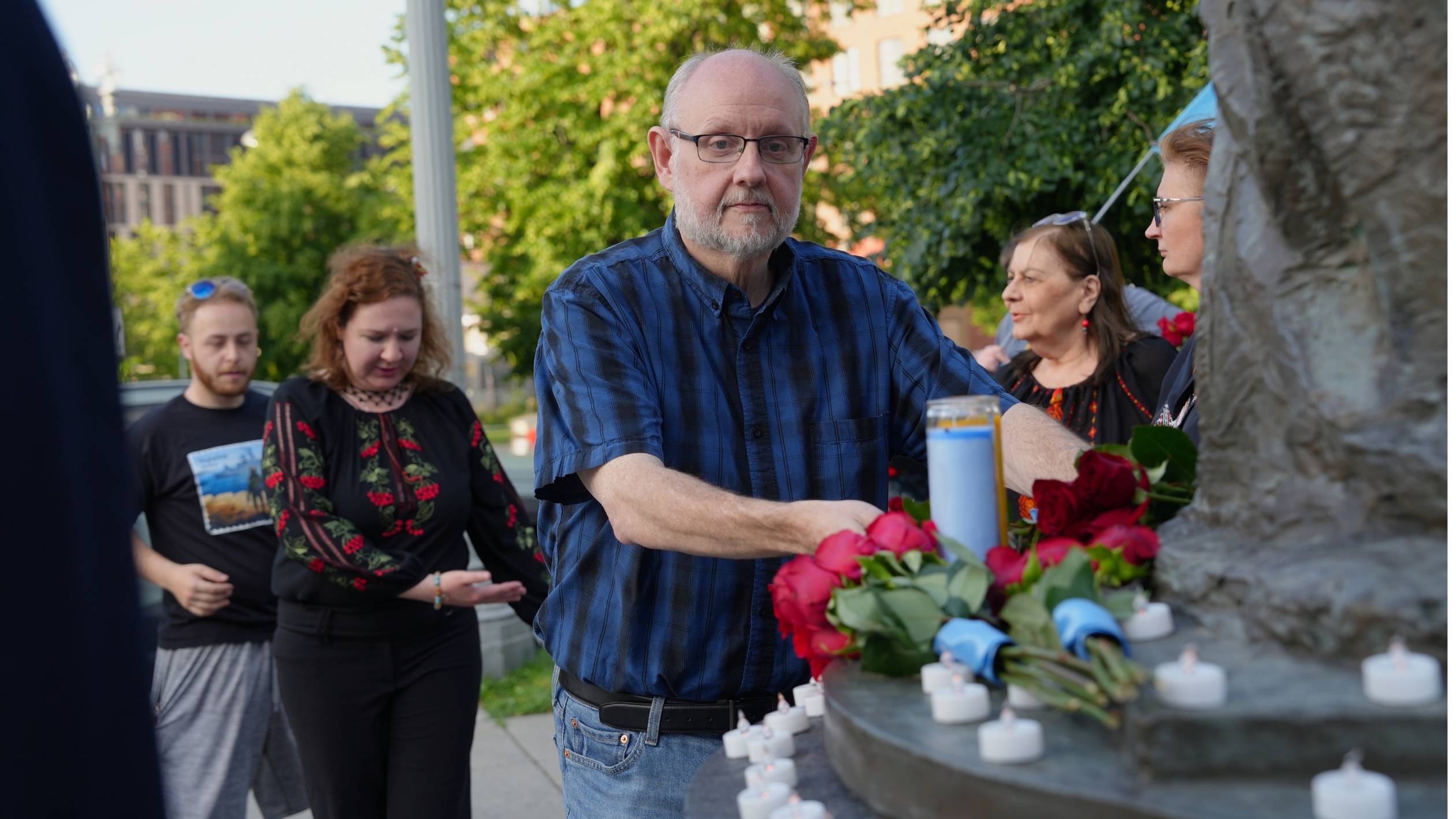
The memorial ceremony included performances of the national anthems of Ukraine, the United States, and Crimean Tatars—a symbolic gesture recognizing the complex historical and cultural identity of a nation who have fought for their rights over decades.
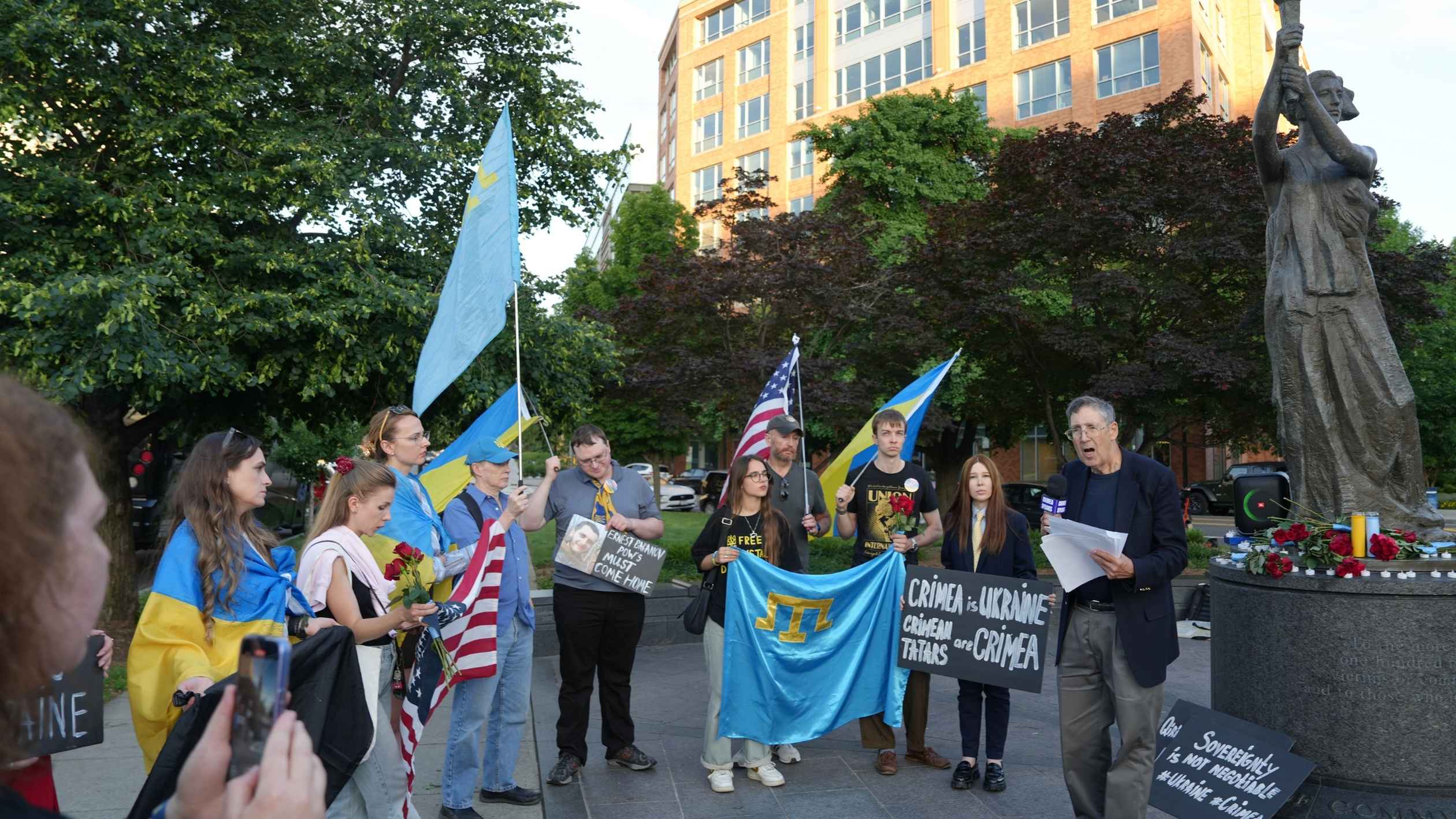
Herbst, whose career includes deep immersion in post-Soviet politics, emphasized the prolonged nature of historical injustice: “And they were not allowed to return to their historical homeland until 1989. So Crimean Tatars began to return in the final years of the Soviet Union.”
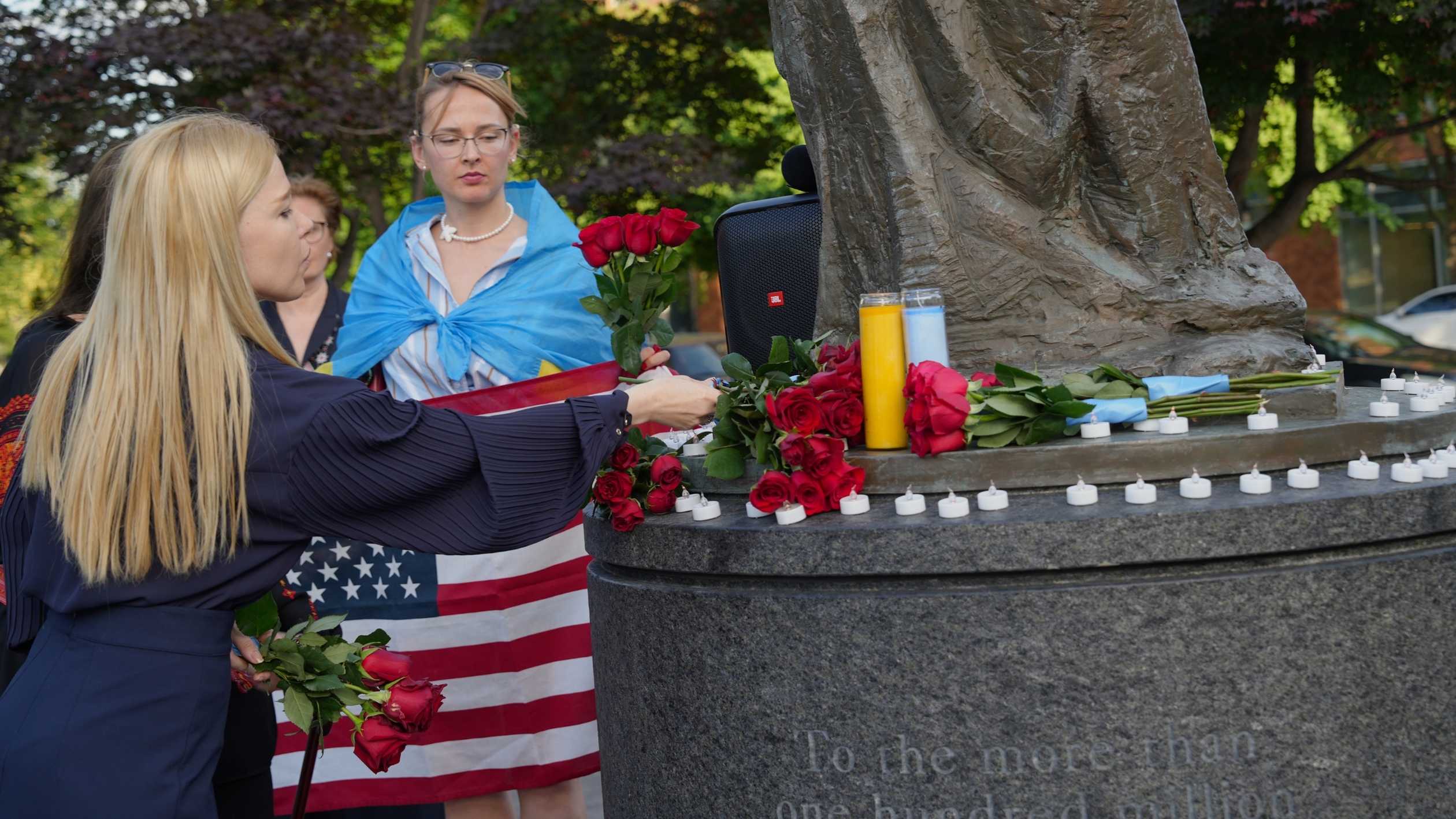
William Taylor, former U.S. Ambassador to Ukraine who represented Washington in Kyiv twice—first during the Bush and Obama administrations (2006-2009) and later as Chargé d’Affaires in 2019-2020—was also present at the ceremony. His attendance underscored the continuity of American support for Crimean Tatar people across successive administrations. In a previous letter to imprisoned Crimean Tatar journalist Remzi Bekirov, Taylor wrote: “Your work as a journalist in Crimea embodies courage in the face of Russian oppression.” This position remains characteristic of American diplomacy toward Crimean Tatars today.
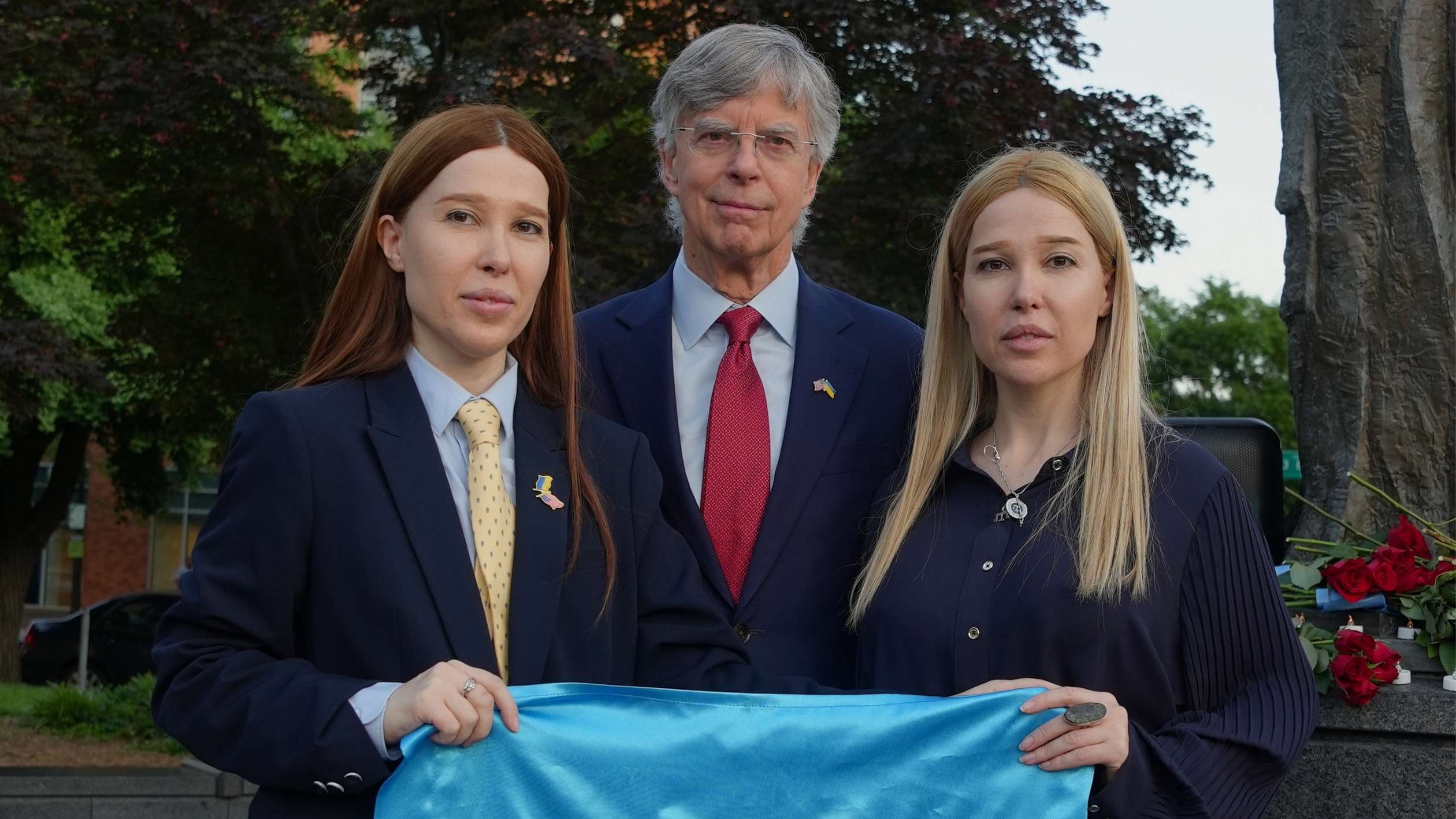
Kateryna Smagliy, representing the Ukrainian Embassy in the United States, added a cultural dimension to the event by reading a poem by Crimean Tatar poet Ablyaziz Veliev, which she had personally translated into English and Ukrainian—a poetic reminder of cultural survival despite attempts at destruction.
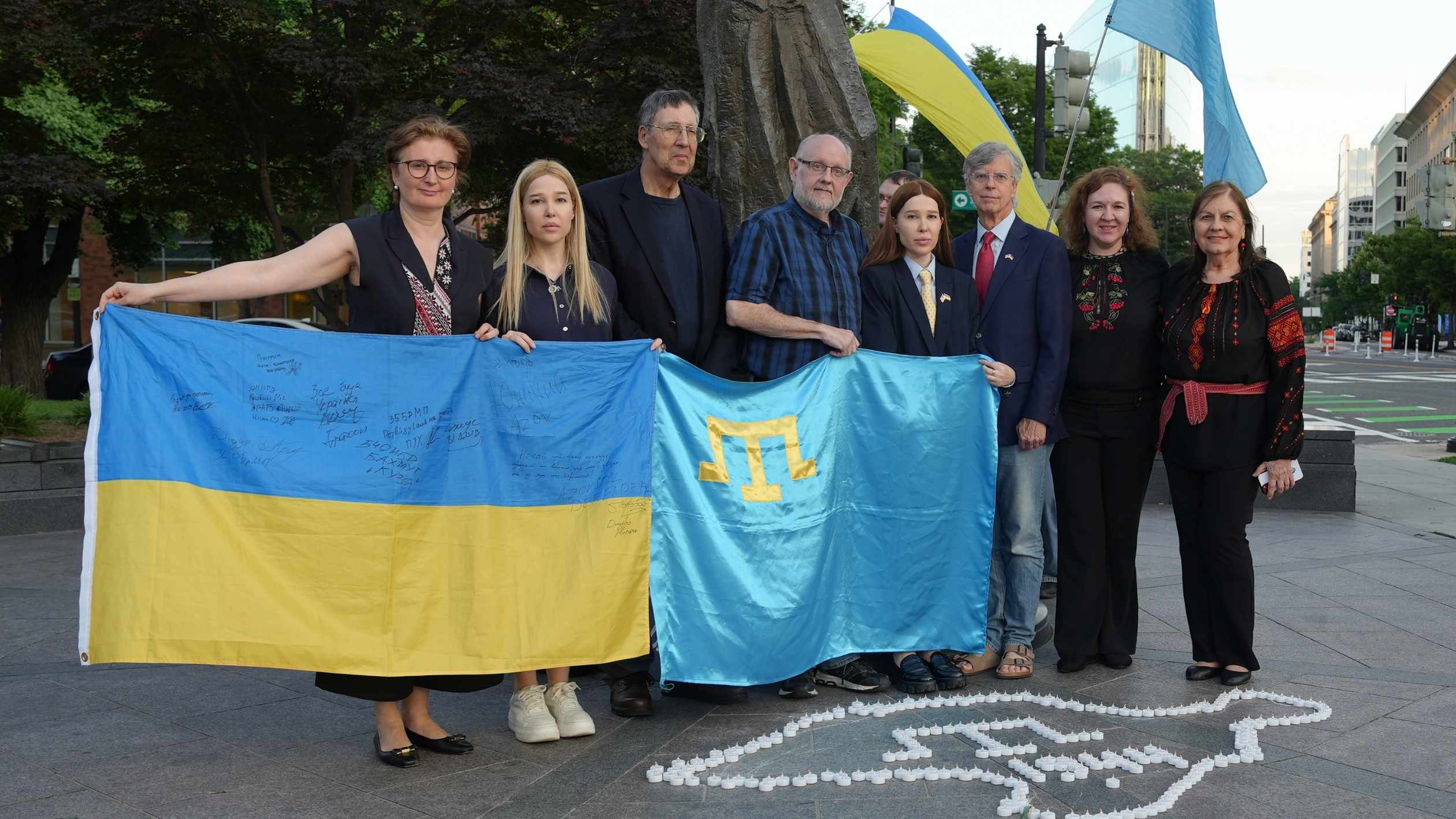
Kenneth Johalskin, an American cultural anthropologist who specializes in the study of Crimean Tatars, called for broader international recognition of the ongoing genocide: ‘We must continue to promote awareness of this genocide—both cultural and ethnic—in the United States and the international community. It is difficult to comprehend that a people who are fighting for their very existence in occupied Crimea continue to face systematic erasure of their identity, rights, and in many cases, their lives

In her speech, which could be characterized as educational for many Americans present, Zera Mustafaieva, President of the Crimean Tatar Foundation USA and researcher at Purdue University, presented a detailed historical perspective.
“The history of Crimean Tatar people is a history of survival despite systematic attempts at annihilation,” said Mustafaieva. “In 1783, after the first annexation of the Crimean State, our people faced the first mass repressions, when 10,000 Crimean Tatars were drowned in the Black Sea. In 1917, the burning of Crimean Tatar leaders, officers, and activists in furnaces was first tested. In 1921-23, an artificial famine in Crimea killed 76,000 Crimean Tatars.” But the historical crime that occurred on May 18, 1944, surpassed all previous ones in scale. The victims of this genocide were 423,100 Crimean Tatars—46.2% of whom murdered in the first 18 months after the beginning of the 1944 repressions.

“Crimean Tatar nation were not simply expelled from their ancestral homeland. They were subjected to systemic destruction: mass deaths, deprivation of property, denial of civil rights, loss of statehood, establishment of a regime of terror in concentrated camps. Their culture, traditions, language, and religion were banned. Their nationality was removed from the Soviet dictionary of nationalities,” Mustafaieva stated.
The historical context gained particular poignancy when Zarema Mustafaieva, Vice President of the Crimean Tatar Foundation USA, turned to contemporary realities. She warned about the consequences of recognizing Russian sovereignty over Crimea, calling it unacceptable for six key reasons, including violations of international law, infringement on Ukraine’s territorial integrity, and disregard for the rights of the indigenous Crimean Tatar people.
“Do not allow yourself to be deceived. Russia will not be satisfied with Crimea alone,” she emphasized. “Its goal is all of Ukraine. Therefore, the only way to end the Russian-Ukrainian war and establish a guaranteed and just peace is the de-occupation of Crimea.”
Roxolana Wynar, speaking on behalf of the human rights community, recalled the decisive role of Crimean Tatars in the history of modern Ukraine: “Crimean Tatars cast decisive votes for Ukrainian independence in the 1991 referendum. Their crucial support ensured that Crimea remained part of Ukraine, effectively counteracting Russian separatist movements on the peninsula.”
Ambassador Herbst linked this history to today’s politics, stating: “When then-President Yanukovych fled to Russia, the leader of Crimean Tatar national movement, Mustafa Dzhemilev, whom I have met several times—a great hero—made it clear that his people stand with the authorities in Kyiv. And by the way, before Putin began the occupation of Crimea in 2014, he approached Dzhemilev, seeking some form of support, which he did not receive.”
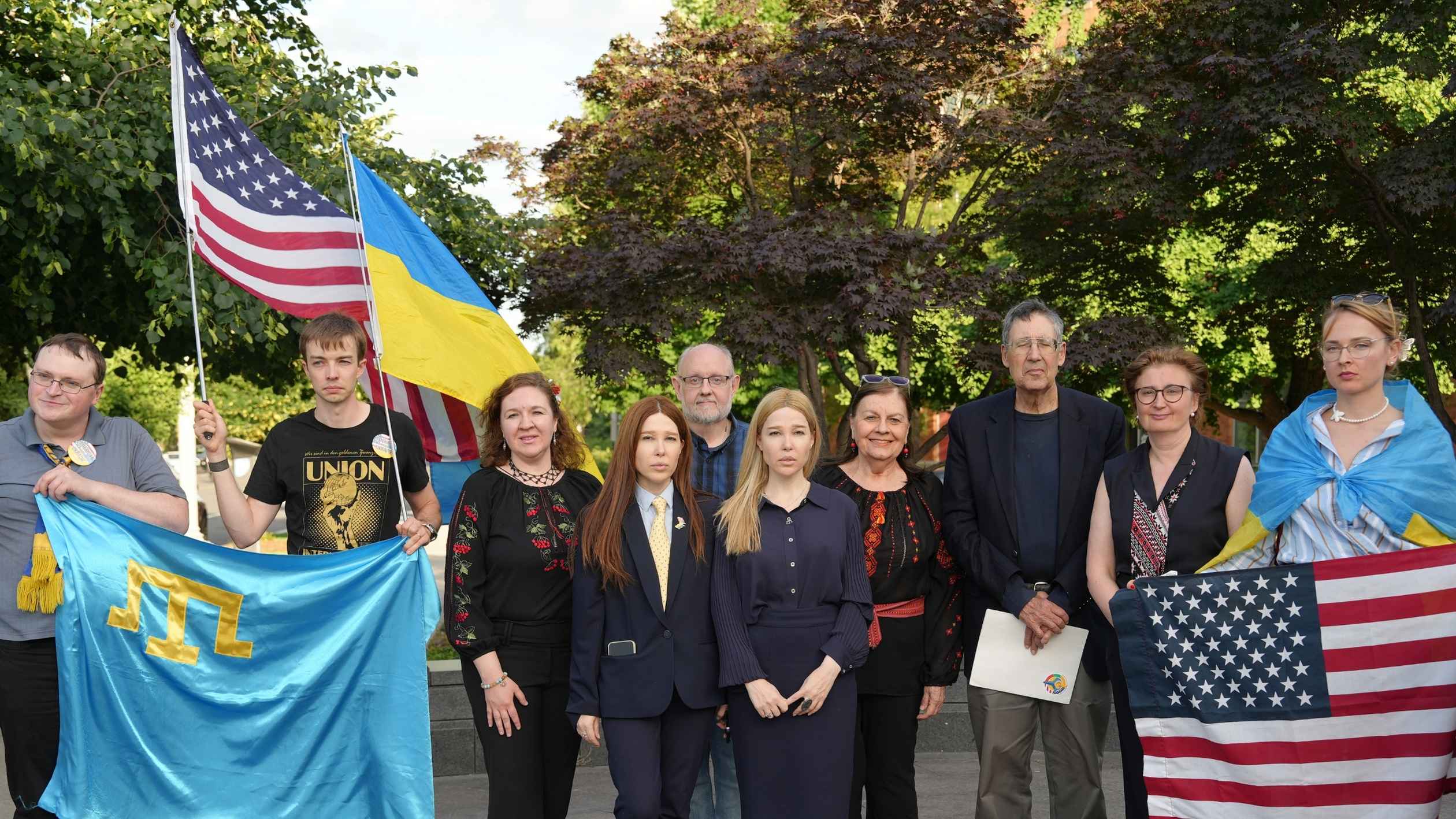
The presence of high-ranking diplomats at the event, including former U.S. Ambassadors to Ukraine John Herbst and William Taylor, along with Dr. Kateryna Smagliy, Counselor for Political Affairs and Public Diplomacy from the Ukrainian Embassy in the United States, served as a significant signal of growing understanding in Washington of the special role of Crimean Tatar issue in the context of the Russian-Ukrainian war. The diplomatic representation from both countries highlighted the bilateral importance attached to addressing historical injustices and supporting the indigenous people of Crimea in their struggle for rights and recognition.